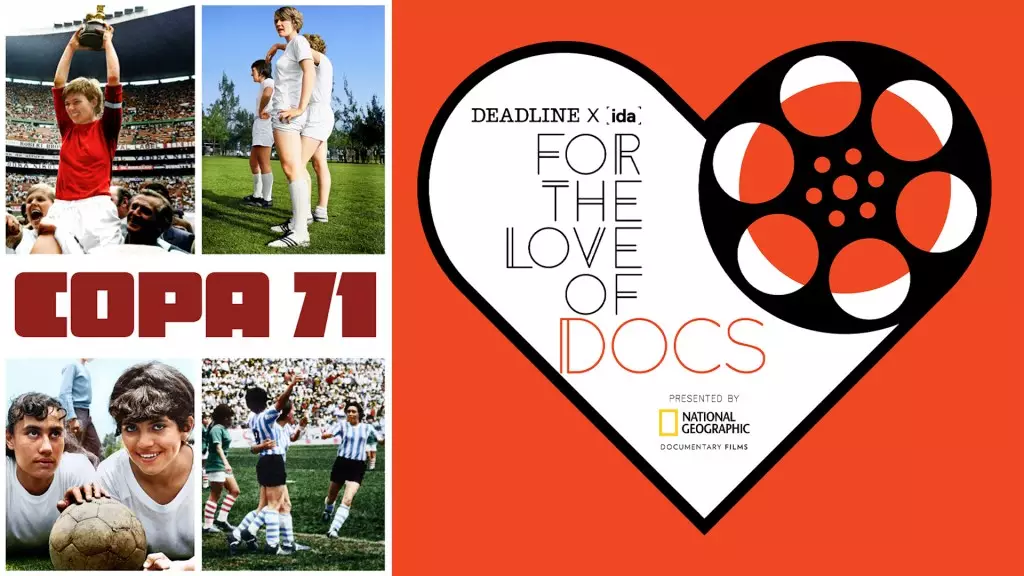In 1971, Azteca Stadium in Mexico City bore witness to a monumental event in the realm of women’s sports: an unofficial Women’s World Cup soccer tournament. As the crowd swelled to over 110,000 fervent fans, the event became a historical touchstone that remains unparalleled in women’s sporting history. This momentous occasion, however, has largely been relegated to the shadows of sports history, a narrative explored in the revealing documentary *Copa 71*. Writers Rachel Ramsay and James Erskine, alongside producer Victoria Gregory, navigate the tumultuous waters of remembrance and historical overlook in their film screened across international film festivals.
Uncovering Untold Stories
The origins of this project stem from a chance radio segment that piqued Victoria Gregory’s interest—an England team member’s voice echoing the story of the tournament. This initiated a determined quest not just for archival footage but for the players themselves, many of whom remained obscure figures in the annals of sports. What emerges in their discussions is the complex web of trust and memory that shaped the players’ willingness to share their experiences. This necessity of building rapport speaks volumes about the societal dynamics these women faced, primarily in a sporting world dominated by male narratives.
As they reached out to players, the hesitation was palpable; many had never shared their experiences with their families, let alone the public. This barrier of silence highlights the stigma surrounding women’s sports at the time, a point emphasized by Gregory. The challenge was not only recounting the event but also ensuring that the players felt safe and respected in having their stories told—especially considering the prevalent media landscape that framed their achievements with derogatory notions rather than celebrating their skills and accomplishments.
The Shadows of Media Scrutiny
Within the documentary, the long shadow cast by the media during the 1971 tournament becomes conspicuous. The journalists of that era, in their unfortunate tendency to sexualize female athletes, created an environment rife with exploitation. Ramsay identifies this pattern as a continuation of power dynamics that permeate sports and society, suggesting that the discussion is not merely historical—it is ongoing. The re-examination of the attitudes during Copa 71 highlights a persistent struggle for female athletes to assert their agency in an arena that frequently seeks to undermine it.
FIFA’s dismissal of women’s soccer as a legitimate sport until 1991 underscores the institutional barriers that female athletes have faced—a narrative that serves as a backdrop to ongoing conversations about equity and representation in sports. Recent incidents, like the uninvited kiss from Luis Rubiales, then-president of the Royal Spanish Football Federation, serve as stark reminders that despite progress, the underlying issues of misogyny and control remain as relevant as ever.
Ramsay points out the documentary’s intention to address broader themes of power, independence, and the nuances of self-expression—issues that transcend mere financial discussions. While economic factors, such as compensation and support, are certainly pivotal, the film challenges audiences to reflect on the intrinsic dignity of athletes’ experiences. By shedding light on the Mexican women’s strike for better pay, *Copa 71* illustrates that the quest for equity is not just about monetary gain; it encompasses a fight for respect, validation, and acknowledgment.
Director Erskine emphasizes the significance of asserting one’s right to self-express, particularly in environments that seek to constrain individuals. This point resonates with modern audiences who can draw correlations to various forms of systemic oppression manifested across cultural landscapes. Ultimately, the film advocates for a comprehensive understanding of historical narratives, encouraging viewers to recognize the interconnections between past and present.
As the documentary winds down, viewers are left with a compelling invitation to reflect on the shared experiences of female athletes and their relentless struggle for recognition. The camaraderie and resilience displayed by women in soccer, from the 1971 tournament to the present day, reveal not only their dedication to the sport but also the necessity of solidarity in the face of adversity. The untold stories of *Copa 71* serve as a reminder that history should be reclaimed, and voices once silenced deserve to be amplified.
In a sports culture that continues to grapple with gender politics, *Copa 71* stands not just as a historical account but as a vital statement about the progress that has yet to be made. The documentary is part of a wider conversation, challenging audiences to hold accountable the institutions that govern sports and to advocate for equitable representation in all facets of society. The legacy of Copa 71 is not just a tale of the past; it invites an ongoing dialogue about the rights and recognition of women in sports, ensuring that their stories are not lost to time.


Leave a Reply